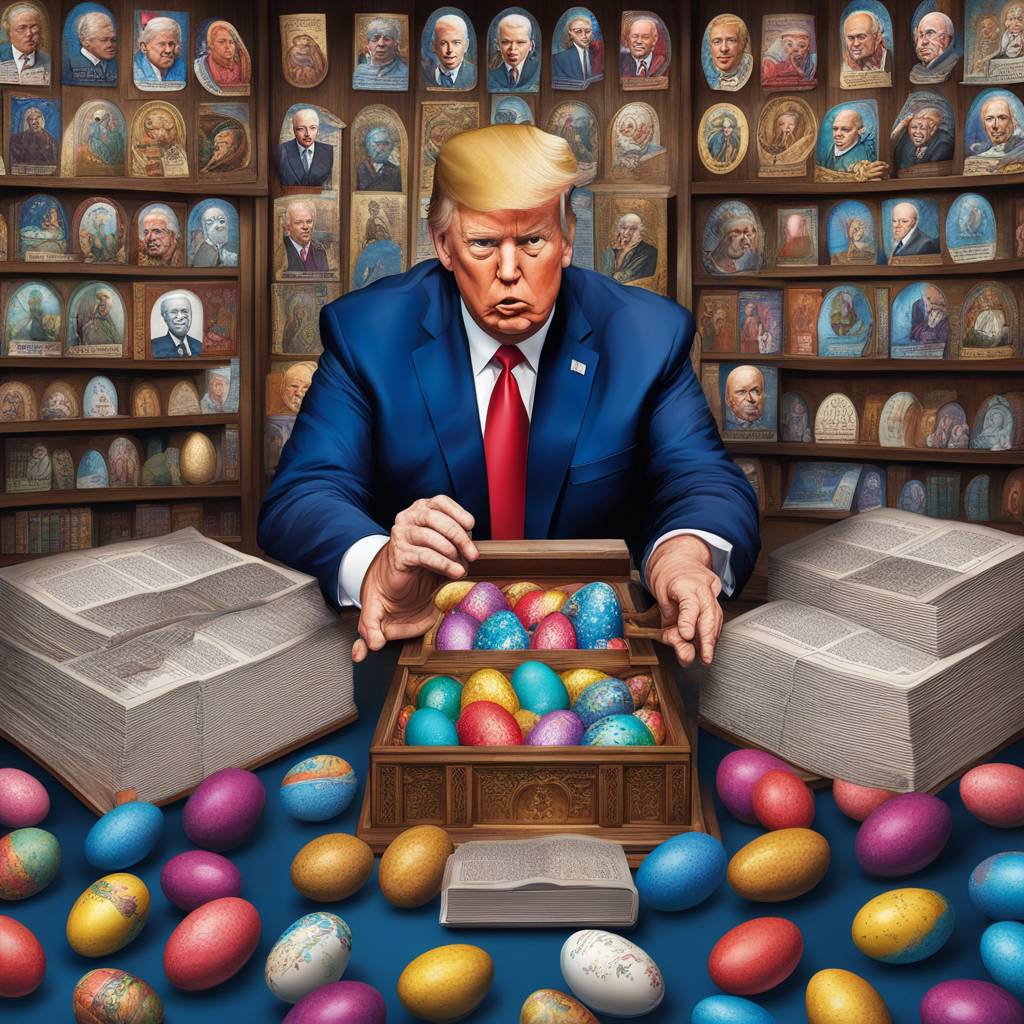The religious beliefs and practices of former President Donald Trump and President Joe Biden are being scrutinized in the media and by their political opponents. Trump is appealing to his followers by selling commemorative Bibles and promoting Christian nationalism by promising to “Make America Pray Again.” Meanwhile, Biden, a practicing Catholic, is facing criticism from Republicans for allegedly disrespecting the Easter holiday. He has openly struggled to reconcile his personal views on issues like abortion with the Democratic party’s stance on women’s rights.
Biden’s religious identity as a Catholic has been a central aspect of his public persona, with his faith guiding his decision-making and policy positions. His support for issues like gun control and climate change align with Catholic social teachings, while his personal views on abortion have led to criticism from some Catholic leaders. Despite this, Biden’s religious beliefs have not deterred his commitment to progressive policies and social justice initiatives.
In contrast, Trump’s use of religion as a political tool has been more overt, with his promises to “Make America Pray Again” serving as a rallying cry for his conservative base. The sale of commemorative Bibles to his followers further demonstrates his willingness to capitalize on religion for political gain. Trump’s embrace of Christian nationalism has also raised concerns about the separation of church and state, as his rhetoric conflates political power with religious authority.
The differences in how Trump and Biden approach religion reflect broader divisions within American society, with religious beliefs playing a central role in shaping political identities and allegiances. While Trump’s appeal to Christian nationalism may resonate with conservative Christians, Biden’s more nuanced approach to faith and politics reflects the complexity of religious beliefs in a pluralistic society. Ultimately, the ways in which Trump and Biden navigate their religious identities will continue to shape public perceptions of their leadership and character.
As the debate over religion and politics in America continues to unfold, the contrasting approaches of Trump and Biden serve as a reminder of the diverse ways in which individuals integrate their faith into their public lives. While Trump’s use of religion as a political tool may appeal to his base, it also raises questions about the intersection of religion and governance in a multicultural society. On the other hand, Biden’s commitment to progressive values grounded in his Catholic faith highlights the potential for religious beliefs to inspire positive social change. The ongoing tension between religion and politics is likely to remain a contentious issue in American public life for the foreseeable future.













